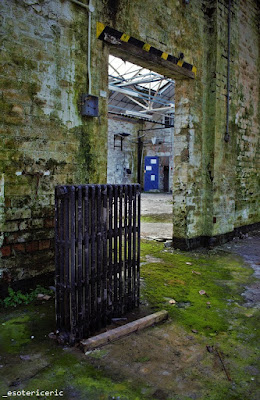History
The Royalty was opened on 20th October 1930 with Maurice Chevalier's "The Love Parade".
The cinema was built for and operated by the local independent Selly Oak Pictures Ltd.
Eventually the site was taken over by the Associated British Cinemas(ABC) chain in March 1935.
The site was closed by ABC on the 2nd November 1963 with Cliff Robertson in "P.T.109".
It was later converted into an Alpha Bingo Club (operated by ABC) and later a Mecca Bingo Club. By 2010 it was operated as a Gala Bingo Club which closed around 2012.
In the summer of 2011, the Royalty Cinema was designated a Grade II Listed building by English Heritage.
Source:
https://www.28dayslater.co.uk/the-royalty-cinema-birmingham-jan-2017.t107422
Esoteric Eric
History
During the Second World War, Wigan was a target for the Nazi bombing raids, due to a munitions factory in Beech Hill and a Steel Mill/Iron works located near Mesnes Park. A collection of tunnels and Air Raid shelters were built under the park and remain there today. These were built to house the workers and local residents and were big enough to hold a couple of hundred people.
Source:
https://www.28dayslater.co.uk/mesnes-pagefield-air-raid-shelters-aug-15.t98480
Esoteric Eric
History
Brock Mill first began operations around the mid 1700's and was further expanded when The Earl of Balcarres bought the mill and built a furnace at Haigh Foundry, which was half a mile downstream. The iron smelting business didn't thrive and furnaces at Haigh were given up as well as work at the forge at Brock Mill. However, the two sites began to prosper and build fire engines. At this time Robert Daglish was appointed as chief engineer in 1804. From 1812 to 1835 Daglish helped build the first locomotive for Lancashire (1812) and the foundry became skilled at casting large steam cylinders as the forge wrought the parts which couldn't be cast. In 1835 The Earl leased the business for 21 years to Messrs Evans & Ryley, soon to be joined by a Mr Burrows. They re-entered the locomotives business and built around 110-120 locomotives. However, locomotives were only part of the business. Haigh Foundry was producing swing iron bridges and dock ironwork for Liverpool and Hull and large steam engines for coal and metal mines. The even attempted iron architectural work. After the 21 year lease had run out, the three men were getting old and didn't renew the lease. Instead, Messrs Birley & Thompson saw the opportunity at hand and took another 21 year lease. Within this time, Haigh Foundry was concentrating on winding engines but had also expanded into brick and tile making and continued to build locomotives that tendered for the Festiniog Railway’s ‘Prince’ class. By the late 1870s, the market was less buoyant and the depression of the early 1880s hit Haigh hard. The lease was given up and the works closed in January 1885. In more recent times the mill had been used by Potters herbal remedies.
Source:
https://www.28dayslater.co.uk/brock-mill-wigan-feb-2017.t107358
Esoteric Eric

















































